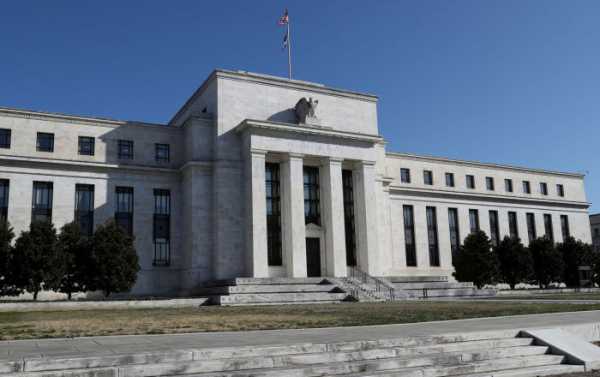
As the spreading COVID-19 has impacted the global economy, sending stock markets reeling, policymakers and financial institutions have been adopting a range of measures to deal with the economic fallout from the pandemic.
The US Federal Reserve slashed its benchmark interest rate by one percentage point to near zero on Sunday, restarted bond buying and money-printing along with other central banks as the escalating coronavirus pandemic impacts the global economy.
The Fed also pledged to invigorate the economy by announcing a $700 billion purchase of securities in the next few weeks, seeking to provide access to credit for businesses and others.

U.S. Federal Reserve Chairman Jerome Powell speaks to reporters after the Federal Reserve cut interest rates in an emergency move
In its statement, the Federal Reserve said:
The Federal Reserve also touted an agreed joint plan of action with central banks of the euro zone, Canada, Britain, Japan and Switzerland on Sunday to offer three-month credit in US dollars on a regular basis to ensure liquidity in the international financial system, slashing the surging price paid by banks and companies to access the US currency.
Capital buffers built up since the financial crisis in the form of trillions of dollars in equity and liquid assets were suggested by the Federal Reserve as a means to offset the impact of the coronavirus on businesses and households, with Federal Reserve Chairman Jerome Powell saying:
Previously critical of Federal Reserve actions, US President Donald Trump praised its move on Sunday, saying at a White House briefing:
ECB
The European Central Bank decided on Thursday not to cut interest rates, while vowing to provide banks with loans at a rate as low as minus 0.75 per cent, below the -0.5 per cent deposit rate, and expanding bond purchases by €120 billion ($135.28 billion) this year with an emphasis on corporate debt.
Italy
Embattled Italy, the European country particularly hard-hit by the COVID-19, has doubled the amount it plans to spend on tackling the coronavirus outbreak to €7.5 billion ($8.4 billion).
It is cited by Reuters as raising this year’s deficit goal to 2.5 per cent of national output from the current 2.2 per cent target.
Mortgage payments will be suspended across the country, while lenders would offer debt moratoriums to small firms and households amidst the fallout from the virus.
Italy announced its largest daily spike of deaths from the coronavirus – 368 – with the overall death toll at 1,809.
Britain
In the UK, the Bank of England slashed interest rates while launching a £30 billion ($39 billion) economic stimulus plan in a double-pronged effort to mitigate likely risks of a coronavirus-generated recession.
France
The French government is reported to be activating state-subsidised short-time work schemes, allowing companies to suspend payments of some social charges and taxes. The news came amid reports that France will not be shutting down the border with Germany over the coronavirus outbreak, but will ramp up border controls, a French presidency official was quoted by Reuters as saying.
Canada
The Bank of Canada lowered its benchmark overnight rate to 1.25 per cent from 1.75 per cent in response to the epidemic, as the country’s Finance Minister Bill Morneau announced on 9 March that the government was “looking at taking some initiatives this week.”
China
In China, where the coronavirus outbreak sparked in early December 2019, officials have reported a gradual decline in numbers of the infected, and in the death toll as well.
As the country’s economy shows serious drops caused by the months-long spread of the Wuhan coronavirus, the central bank cut several of its key rates, including the benchmark lending rate, while urging banks to give cheap loans and payment relief to vulnerable companies, as the country earmarked 110.5 billion yuan ($15.9 billion) to fight the epidemic.

A man wears a protective mask as he walks on Wall Street during the coronavirus outbreak in New York City, New York, U.S., March 13, 2020
The action by the US Federal Reserve and other central banks came as the global death toll from the coronavirus rose to 6,494.
Around 170 million people in France and Spain were instructed to echo quarantined regions of Italy in adopting a “stay-at-home” policy, while Germany confirmed that stretches of the border would be shut to all but essential traffic, as the Interior Minister Horst Seehofer said that he had ordered the return of controls on the border with five Schengen zone countries, Austria, Denmark, France, Luxembourg and Switzerland.

FILE PHOTO: Medical staff with protective clothing are seen inside a ward specialised in receiving any person who may have been infected with coronavirus, at the Rajiv Ghandhi Government General hospital in Chennai, India, January 29, 2020.
The World Health Organization (WHO) has declared a global pandemic over the new coronavirus, officially known as COVID-19, that has since spread to at least 141 countries and territories, killing more than 5,700 people worldwide.
Sourse: sputniknews.com
0.00 (0%) 0 votes


































